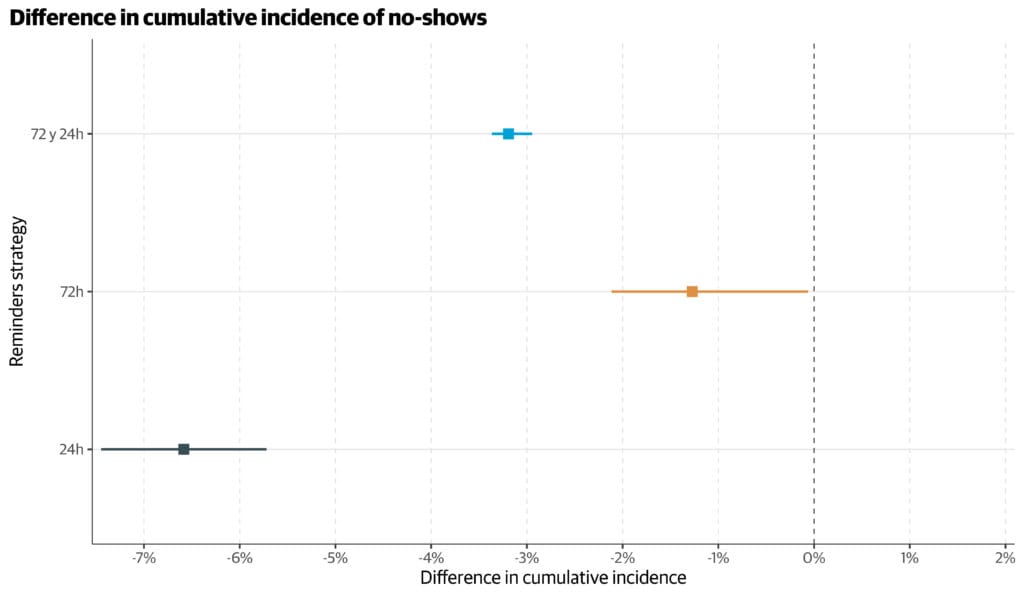Health Services/Policy
Reducing no-shows in public healthcare: Target trial emulation and cost-benefit analysis of WhatsApp reminder strategies to reduce appointment absenteeism Santiago Esteban* Santiago Esteban Gastón Quintana Constanza Silvestrini Alejandro Szmulewicz
Missed medical appointments impact healthcare efficiency and increase operational costs. This study evaluated the comparative effectiveness and cost-benefit of different strategies that include WhatsApp reminders to reduce absenteeism in the Buenos Aires City public health system.
Methodology
A target trial was emulated using public health system data from May 2023 to May 2024. Inclusion criteria were: scheduled in-person medical appointments at least 72 hours in advance for prioritized specialties, and possession of a mobile phone. Four strategies were assessed: two WhatsApp reminders (72h and 24h prior), one reminder (72h), one reminder (24h), and no reminders. Reminders included options to cancel/reschedule. Time zero was set 72h before the appointment. Individuals were followed until appointment time or cancellation (patient or health system cancellation). The main outcome was the cumulative incidence (CI) of no-shows (missed or patient-canceled appointments). Secondary outcomes included cancellation and rebooking CI. The main causal estimand was the per-protocol effect. Effect estimation was done using the clone-censor-weight approach. Subgroup analyses considered age in years (0-12, 13-18, 19-40, 41-65, >65), timing of appointment booking (3-15, 16-30, 31-45, >45 days prior) and health facility type (primary care vs hospital).
Results
Data from 472,476 participants showed that a 24h reminder reduced no-show incidence by 6.58% (95% CI: -7.45% to -5.72%) compared to no reminders and had the highest cost-benefit ratio ($2.68 to $4.73 per Argentinian peso). The 72h reminder strategy yielded the best early cancellation and rebooking rates (1.59% increase, 12h prior). Subgroup analysis found greater effectiveness among adolescents and those booking appointments > 45 days in advance.
Conclusion
The 24-hour strategy was the most impactful and cost-effective. Future research should explore personalized messages and outreach for patients without compatible technology.

